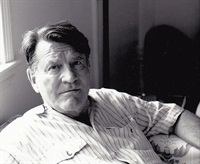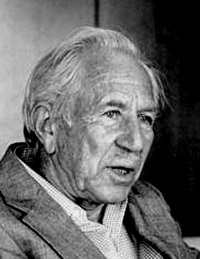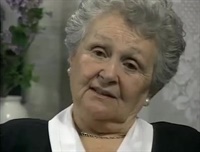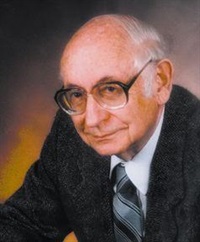EP95 Panel 11 - How to Determine Success - Jay Haley, MA; Alexander Lowen, MD; Olga Silverstein, MSW; Joseph Wolpe, MD
- Average Rating:
- Not yet rated
- Topic Areas:
- Topical Panels | Psychotherapy | Goals of the Therapist | Therapeutic Process
- Categories:
- Evolution of Psychotherapy | Evolution of Psychotherapy 1995 | Pioneers in Couples and Family Therapy
- Faculty:
- Jay Haley, MA | Alexander Lowen, MD | Olga Silverstein, MSW | Joseph Wolpe, M.D.
- Duration:
- 57 Minutes
- Format:
- Audio Only
- Original Program Date:
- Dec 15, 1995
- License:
- Never Expires.
Description
Description: Success in psychotherapy is shown to depend on individual goals and the chosen therapeutic approach. This session covers long-term impact, measurable outcomes in behavior therapy, and the difficulty of comparing different methods. It also addresses the influence of managed care and the limitations of eclectic practices.
Moderated by Carol Kershaw.
Educational Objectives:
- To compare and contrast clinical and philosophical perspectives of experts.
*Sessions may be edited for content and to preserve confidentiality*
Credits
Handouts
| Timestamped Transcript (820.5 KB) | 18 Pages | Available after Purchase |
| Ericksonian Learning Snapshot (244.5 KB) | 2 Pages | Available after Purchase |
Faculty

Jay Haley, MA Related Seminars and Products
Jay Haley (M.A., 1953, Stanford University) was Director of Family Therapy Institute of Washington, D.C. He was one of the leading exponents of the strategic/interpersonal approach to family therapy. Haley served as Director of the Family Experiment Project at the Mental Research Institute and as Director of Family Therapy Research at the Philadelphia Child Guidance Clinic. He has authoered seven books, co-authored two and edited five. Additionally, he has more than 40 contributions to professional journals and books. Haley is the former editor of Family Process, and the first recipient of the Lifetime Achievement Award of The Milton H. Erickson Foundation.

Alexander Lowen, MD Related Seminars and Products
Alexander Lowen, MD, was an American physician and psychotherapist. A student of Wilhelm Reich in the 1940s and early 1950s in New York, he developed bioenergetic analysis, a form of mind-body psychotherapy, with his then-colleague, John Pierrakos. Lowen was the founder and former executive director of the International Institute for Bioenergetic Analysis in New York City.

Olga Silverstein, MSW Related Seminars and Products
Olga Silverstein was a renowned therapist and teacher. She specialized in family therapy and wrote several works on the subject of parenting, including The Courage to Raise Good Men. The daughter of Hungarian immigrants, she came to the United States at age seven, married young, and remained home rearing her three children until she was forty. Over the next seven years, she secured a high school diploma, a bachelor’s degree, and then a master of social work degree. In the mid-1970s she was co-founder with Peggy Papp of the Brief Therapy Project at the Ackerman Institute.
During the decade of the 1970s she and Papp joined Betty Carter and Marianne Walters to launch The Women’s Project in Family Therapy. They focused on examining the sexist concerns and theories that dominated their clinical practice, and soon began to offer workshops in the United States and abroad on women’s relationships in families. The pioneering and classic work, The Invisible Web: Gender Patterns in Family Relationships, was written by the four colleagues from this experience.

Joseph Wolpe, M.D. Related Seminars and Products
Joseph Wolpe, MD, was a South African psychiatrist, one of the most influential figures in Behavior Therapy. Wolpe grew up in South Africa, attending Parktown Boys' High School. Joseph received his M.D. in 1948 from the University of Whitatersrand in Johannesburg, South Africa. He was Emeritus Professor fo Psychiatry and Former Director of Behavior Therapy Unity at Temple University Medical School. He was Professor of Psychiatry at the Medical College of Pennsylvania. One of the leading practitioners of behavior therapy, he has authored three books and co-edited two, and has more than 200 professional publications. He cofounded the Journal of Behavior Therapy and Experimental Psychiatry. He is receipient of the Distinguished Scientific Award for the Applications of Psychology from the American Psychological Association.


